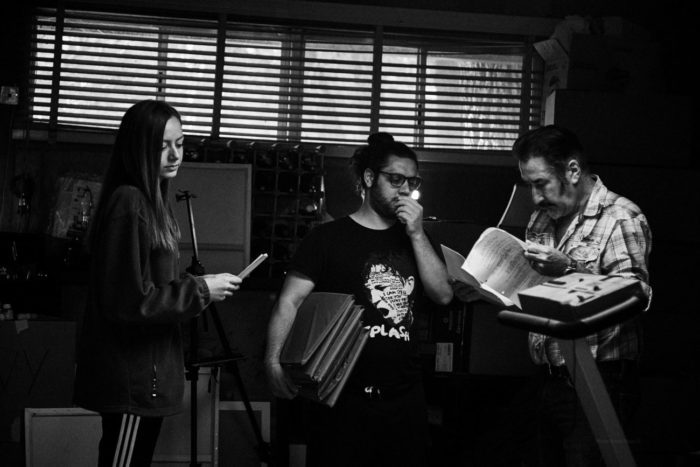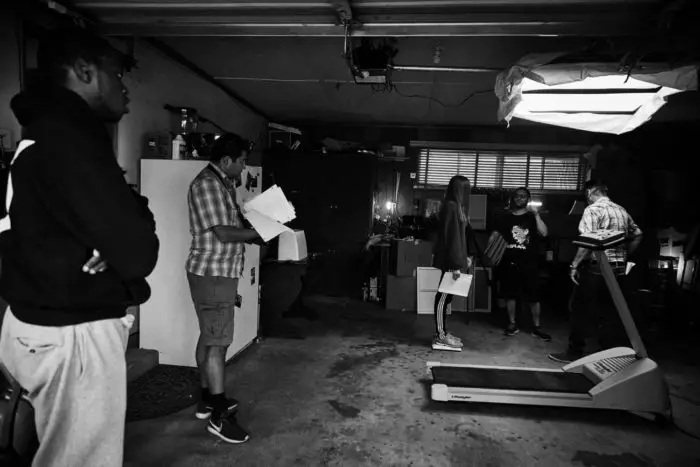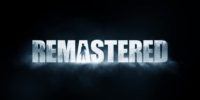Note that this article contains some mild spoilers and may be best read after watching the film.
I watched and reviewed Captive recently, at first expecting it to be yet another film about a woman being hunted and captured by a man. It was different though, fortunately, and by the end, I had several questions I wanted to bring to Savvas Christou, who wrote and directed it. He was more than happy to talk:
“I’m from Limasol, Cyprus,” Savvas told me. “I went to study fine art in Greece, at the Aristotelio Thessalonikispe, and after that wanted to do something with films. That was my passion, I think from the second or third year of my fine art course. I bought a camera and tried to make films with my friends and said this is what I like to do, you know? I flew to LA and did my master’s in directing, filmmaking in general. One thing led to another, I made a feature film and tried to make it happen.”
Captive was Savvas’ first feature film, though he has carried on making some shorts, too. “Yeah, I’ve done a lot of shorts,” he said, “I love doing shorts, but as soon as you make your first feature, that’s the first step. You have to make a lot of them to become familiar with all the concepts in making a movie and telling a story. I think it’s difficult to make a good story in a short form, but it does help to keep practising and experimenting. I like to experiment with my shorts and have tried a lot of drama and horror. I’ve found I like the psychological aspect of a movie, so now I’m writing more psychological thrillers.”
Savvas has written and directed most of his own shorts. I asked whether Captive started off in that form first. “It did, actually, yes,” said Savvas. “I wrote the short story back in 2015, I think, but it started really before that: I was eating a pizza slice in the street, and next to me was a delusional homeless man, so I shared the pizza with him. He basically told me his story, that’s what happened. I went back home and wrote the idea in my MacBook, and then two years later, I wrote that into a short, and then of course into a feature. It started with his idea, but I had problems with the story, so I took it in a different way and it evolved.”
So as the delusional character in Captive (Evan, played by William Kircher) was based on what Savvas had heard from a real person. I asked whether any research was done to add to that. “Yes, I consulted with a doctor who specialises in this type of delusions. We talked a lot, and he read the script. He gave me notes in order to be more precise.”

I generally try to keep my own views out of my interviews with filmmakers, so as to focus wholly on theirs, but I decided to share an opinion of mine in order to ask for Savvas’ response. I had thought I’d had enough of films about men capturing women; it’s been a feature of cinema for decades, after all. I asked Savvas about the benefit of producing another one. “I get this question a lot,” he said. “It’s not about the kidnapping. For me, the movie is about two characters who really want to find love, to find good family. I grew up in my hometown in a good family, and I saw around me how other people reacted to their situations, and I wanted to write something about two people finding out what family is. So that’s the initial start of the idea. That delusional man told me about his daughter, and he didn’t make sense. It was something different, so that’s how I wanted to do the movie. We don’t have a man capturing a woman, but in his mind, it was his daughter. You see the movie from two different points of view: a loving father and a traumatised teenager. She wants a father figure who is a good one.”
A “good” father, yes, but he has some complex ways of expressing his paternal affection. Considering all the twists and turns as the strange bond developed between the two central characters, I had to ask what message Savvas wanted the audience to take away from his film. “Well everybody’s personality is affected by family, so it is crucial that we raise our kids in the best way possible because they are the next generation. I saw a lot of manipulation from parents. I saw parents who didn’t achieve their dreams and now want their kids to make them. So for me, in my movie, what I want to tell is to find your own way to raise your kids, but also make them strong people who want to be what they are. Don’t expect them to be what you want.”
The aspect of Captive that I felt most uncomfortable about was the ending. It could be seen as problematic, controversial, or liberating; maybe it depends on the viewer’s perspective. I asked Savvas how he saw it. “For me, the ending had to be open. There is no right or wrong in every single situation. It’s all down to opinion. I didn’t want to give exactly what happened in my head, but have you, the audience, decide. For me, they get to live their lives together; that’s what’s in my mind. It’s tricky because in my mind they’re happy in a weird way, though I have heard other opinions. I’ve heard someone say ‘she’s going to crash the car’ or stuff like that. I think the movie has a lot of complexity, so each one has to decide their own ending.”

So there’s no possibility of a follow-up story? “Initially in the script, I wrote two more scenes,” said Savvas, “which were what I wanted to show, but I deleted them. Of course, when you make a movie, you think you want to continue the story, but it’s not a good idea. This movie has to stand alone. I know people demand sequels, but for us filmmakers, we wrote the story, and you want us to explore more, and more? I don’t think it’s a good idea.”
Sure, the writer makes a decision about where to end his tale; though for me, as a viewer, I couldn’t help wanting to know what happens next. In some films, that’s a frustration; in others, it’s the sign of a good yarn. I wanted to know what happens if the uncle returns, what happens if Evan discovers two daughters! “I think in the very, very first take I did in the draft, I considered Evan looking at both of them at the same time, and actually I didn’t know how to finish from there. I researched, but couldn’t find anything on a delusion being confronted like that, or how a person would react; so I said to myself no, this is too complicated, and I’m not going to do it.”
Savvas was involved with the casting, as well as writing and directing. I asked about the process of selecting his two lead actors. “Tori Kostic, who plays Lily, she came into the room, and the first minute I said, wow, this is the one. Me and Melissa [Gutierrez], the producer, we saw many girls, maybe two hundred, and Tori really stood out. I always picture the character should be played by someone who has something to tell from her eyes—they say a lot. As for William Kircher in the role of Evan, I did a lot of casting and didn’t find what I really liked, then out of nowhere William emailed me. We chatted for maybe two weeks and did some Skype calls, and he was back in New Zealand. I invited him to LA, he flew here, and we started right into rehearsals.”
Captive had its European premiere at FrightFest just a couple of days before we spoke, and I asked Savvas how it had been received. “I heard a lot of good things, comments from critics were fantastic, actually. People attending FrightFest tagged me on Instagram and everything: it was so nice to see.”
I asked whether the rest of the world would be seeing the film soon. “In USA and Canada, we already have distribution from Vertigo Entertainment, released back in May. And we signed with a sales agent, High Octane Pictures, and they will make sales to the rest of the world; but we are waiting for more offers right now.
I asked Savvas what he is working on next. “I [started] writing my next movie before I even shot Captive, and I am still in the process of finishing a script—maybe one more draft, another month. It’s a psychological thriller again, but with more horror elements; some moments that want to make you scared. I want to be focused, and shoot next year, but funding first.”
I had asked for this interview because Captive raised so many questions, such as basically ‘What on Earth were you thinking?’ and now I feel like I have those answered. “Also, you try to make a movie and tell what you want to tell, but always before I shot the movie, I’d do a lot of table reads. People read the script, and I made notes. I wanted people to like the movie, but I also wanted to say what I wanted to say. There were some things that needed to be deleted, but not too much.”


